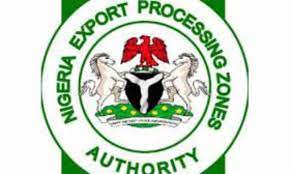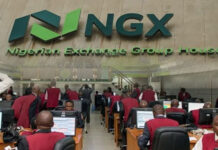Nigeria free trade zones attracted over 46.6 billion dollar investments into the nation’s economy.
The Nigeria Export Processing Zones Authority (NEPZA)the Managing Director of NEPZA, Prof. Adesoji Adesugba and his counterpart from the Oil and Gas Free Zones Authority (OGFZA), Sen. Tijjani Kaura said this at the 30th anniversary of free trade zones scheme in Nigeria on Wednesday in Abuja.
Adesugba said trade zones being regulated by NEPZA attracted over 30 billion dollars investments since inception of the scheme in 1992, while Kaura put the investments attracted by OGFZA since 1996 at 16.6 billion dollars.
He said that the global business model was meeting its objective in fast tracking economic growth and industrialisation.
According to him, the decision of the Federal Government to key into this concept has remained legendary as the model has become a key driver of the nation’s economy.
While projecting a brighter future for the free trade zones, Adesugba said that the business enclaves harbor over 600 enterprises providing 150,000 direct employment and an estimated 400,000 indirect employment.
“To date, the zones have attracted over 30 billion dollars investments which is expected to exponentially increase in the next few years with our sustained incentives and aggressive investment drive across the world.
“The future is bright for the Free Trade Zone scheme in Nigeria.
“And again, we express our profound appreciation to the President Muhammadu Buhari-led administration for the approval given for the establishment of six Special Economic Zones and the earmarking of four international airports as Free Trade Zones in 2021,’’ he said.
Adesugba pledged that NEPZA would continue with its reforms to position the scheme for global competitiveness.
According to him, the authority has established Special Economic Zones Dispute Resolution Centre to mediate in disputes among operators in the zones.
“NEPZA has also established Special Economic Zones Security outfit to professionally secure lives and investments in the zones.
“More so, the Special Economic Zones Training Institute, Kano will help bridge the knowledge gap in the free zones scheme.
“The authority also established an automated platform to digitise the operations of the scheme for enhanced efficiency and accountability,’’ he said.
Adesugba added that NEPZA recorded the inauguration of five-storey building at Victoria Island, Lagos and developed 25MW power infrastructure each at Calabar and Kano free trade zones.
“In the last 30 years, the scheme is operating under robust fiscal incentives as enunciated in the enabling Act.
“These provisions have enabled the Authority to checkmate attempts by revenue-generating agencies to over reach themselves in collection of taxation and levies,’’ he said.
The NEPZA boss said that rather than bickering amongst sister agencies, the Authority was developing notable strategic alliances as follows:
“Acceptance by the Nigeria Customs Service (NCS) to fully implement the free duty incentives regarding imports and exports by Free Zones’ Enterprises into the customs territory.
“A Memorandum of Understanding with the Federal Inland Revenue Service (FIRS) on administration of taxes in the zones and regulatory guidelines for banking operations in the free zones in collaboration with the Central Bank of Nigeria (CBN),’’ Adesugba said.
He said that 13 free zones have been licensed so far by the current administration, describing the presence of key global enterprises in the zones as a testament to the assertion in speedily contributing to the growth of the Nigerian economy.
“Notable of these are: Dangote Industries Free Zone, the Deep-Sea Port in Lagos, Lekki Free Trade Zone, Eko Atlantic City, OgunGuandong and LADOL.
On his part, Sen. Tijjani Y. Kaura, Managing Director/CEO Oil and Gas Free Zones Authority, said oil and gas free trade zones attracted over 200 companies with over 16.6 billion dollars.
Kaura added that the scheme created over 200,000 direct and indirect jobs, thereby contributing to local content development.
He however said that regardless of the achievements made so far, the scheme had faced some challenges.
According to him, the scheme in Nigeria still lags in delivering key economic developmental indices compared to what has been attained by free zone schemes in other locations.
“Taking cognisance of our comparative advantage in the hydrocarbon sector, Nigeria established the first free zone dedicated to oil and gas in the world.
“This has tremendously contributed to Nigeria’s Gross Domestic Income, in an unprecedented manner, Kaura said.
Kaura said that OGFZA was still open to partnership to develop the enormous potential in the mid and downstream sectors in line with the Nigeria’s national development plan.
“This is with immediate emphasis on the Medium-Term National Development Plan 2021-2025, while providing model development centres for achieving the agenda 2063 of the African Union in collaboration with other international development partners,’’ he said.



















